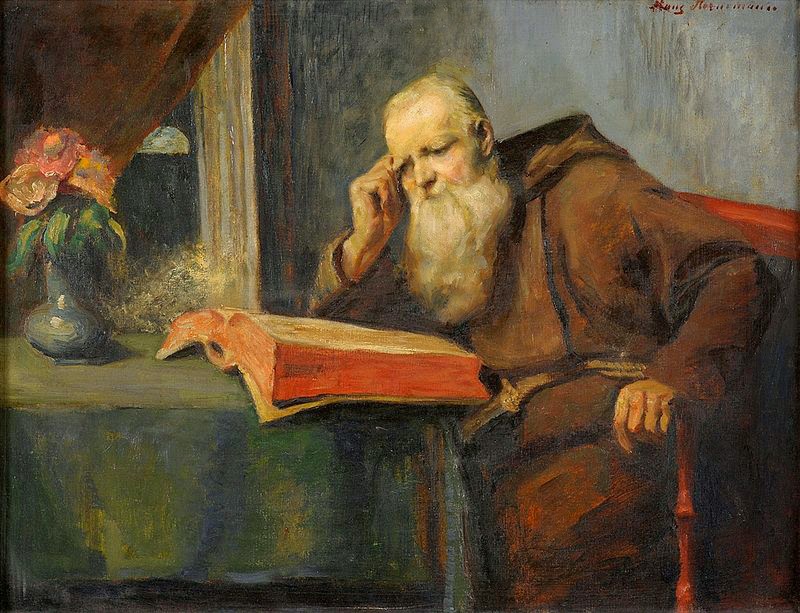"In modern scholarship Epiphanius has thus been routinely maligned as hell-bent on sniffing out heresy wherever it could be found, fanatical, narrow-minded, intransigent, aggressive, theologically inept, and even given to buffoonery. But is there more to this figure than these caricatures suggest?"
Read MoreDissertation Spotlight | Philip Michael Forness
"Around seven hundred homilies authored in Syriac survive from the fourth through sixth centuries. Yet most have resisted efforts to identify their dates, locations, and liturgical settings. By attending to these texts, we are forced to confront the difficulty of interpreting the seemingly de-contextualized remains of most sermons from late antiquity."
Read MoreTeaching Students to Read (the Mishnah)
Dr. Sarit Kattan Gribetz shares her strategies for teaching the Mishnah to students with no exposure to rabbinic texts.
Read MoreWhat's Divine About Divine Law? #SBLAAR16
SBL's History of Rabbinic Literature's 2016 review panel of Dr. Christine Hayes' What's Divine About Divine Law?
Read MoreChristine Hayes: A Response to the SBL Forum
Christine Hayes responds to the SBL forum featuring her book, What's Divine About Divine Law?
Read MorePaul and the Mosaic Law
Divine Law: Nominalist/Realist or Rational/Irrational?
"There is, in short, a an important but small subset of the Law that many ancient Jews, in the second temple and rabbinic periods, believed to be self-evidentially rational."
Read MoreDivine Law in the Container Store
Row of Amphorae (Ad Meskens, Bodrum Castle Turkey)
Row of Amphorae (Ad Meskens, Bodrum Castle Turkey)
Dr. Beth Berkowitz reviews Hayes' What's Divine About Divine Law with a "Container Store" worthy synopsis and explores the modern relevance of Hayes' work in the recent Supreme Court ruling on Same-Sex Marriage.
Read MoreRetrospective | Jorunn J. Buckley
"Most of my contributions to Mandaean studies engage topics in Mandaean texts for these topics’ own sake. That means trying to take the literature on its own terms, in accordance with its own religious logic, and avoiding flights into the hallowed sanctuaries of comparisons."
Read MorePaul is Dead. Long Live Paulinism! : Imagining a Future for Pauline Studies
"When I think of what it would take to make Pauline studies fun, I am drawn to one simple idea: we have to kill Paul.”
Read MoreDissertation Spotlight | Travis Proctor
Despite their general agreement regarding demonic pervasiveness, Christian writers often disagree concerning the nature of the demonic, particularly vis-à-vis the demons’ physical appearance and substance.
Read MoreDissertation Spotlight | Phillip Webster
Psukhai that Matter: The Psukhē in and behind Clement of Alexandria’s Paedagogus aims to investigate the ideology and mechanics of the ancient soul’s materiality.
Read MoreAJR Charity Forum: a Response
Dr. Michael Satlow responds to the AJR Charity forum, concluding "we can no more speak of 'the' rabbinic view of charity than we can of “the” rabbinic view of anything else."
Read MoreCharity in Ancient Judaism: Problems and Prospects
Dr. Gregg Gardner describes the tannaitic attention to the dignity of the poor, while insisting "The earliest rabbis were simply not as altruistic as many people today would like them to be."
Read MoreModels of Rabbinic Charity
Dr. Yael Wilfand surveys models of rabbinic charity and suggests that "at least some of the notions and practices mentioned in this corpus seem to have been accepted and engaged beyond rabbinic circles."
Read MoreReading Charity Texts: On Intertextuality and Social History
Dr. Alyssa Gray reflects on her contributions to the field of rabbinic charity and urges scholars to "take rabbinic intertextuality and the creation of texts out of other texts very seriously."
Read MoreDissertation Spotlight | Noah Bickart
"This project investigates the meaning and usage of a particular set of linguistically related Talmudic terms in order to show how and in what cultural context the Talmud began to take shape in the emerging scholastic centers of rabbinic learning in late Sassanian Babylonia."
Read MoreIdentity, a Way Forward (Perhaps)
Dr. Todd Berzon tackles the ambiguity of identity and suggests "the use of identity operates to conceal analysis rather than illuminate it. The term is not simply under-explained (and under-theorized), but its imprecision hints at a more fundamental problem: identity usually means something else entirely."
Read More“The Most Daring Blasphemy”: Getting Students to Think Critically About Extra-Canonical Texts
Dr. Sarah Rollens turned a final paper assignment into a rhetorical exercise in canon formation.
Read More




![Paul Writing His Letters attributed to Valentin de Boulogne [Public domain], via Wikimedia Commons](https://images.squarespace-cdn.com/content/v1/5449167fe4b078c86b41f810/1482324718488-P5P72NL97X7AQLIVIG03/image-asset.jpeg)

![Mandaean Incantation Bowl By Daderot (Daderot) [CC0 or CC0], via Wikimedia Commons](https://images.squarespace-cdn.com/content/v1/5449167fe4b078c86b41f810/1478699091019-EGE9UO8H23CEULYPFVRB/image-asset.jpeg)







